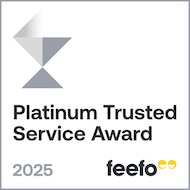In the recent Budget, there were no changes related to Council Tax in England. However, this means that local councils are free to increase the amount if they need to do so, for example to raise extra funding for the services they provide.
Most councils are allowed to increase it by 2.99% and those with social care duties can raise it by up to 4.99%. Other councils can increase bills by more than 5%, with government permission, such as Birmingham where Council Tax will rise by 21% in two years.
But what exactly is Council Tax, who has to pay it, and how do you know whether you are paying too much? In this article we take a quick look at:
- What is Council Tax?
- How much is Council Tax?
- Who has to pay Council Tax?
- What happens if you can’t pay your Council Tax?
What is Council Tax?
Council Tax is an annual fee that you pay to your local council for the services it provides, such as local police and fire services, leisure and recreation, libraries and education services, rubbish collection and disposal, and transport services.
How much is Council Tax?
How much Council Tax you pay depends largely on the valuation band your property is in and also your personal circumstances. There are eight Council Tax bands from A, the cheapest, to H, the most expensive.
If you think your home might be in the wrong band, meaning that you are paying too much Council Tax, you can ask your council for a review. If your home is found to be in a higher band than it should be, you may be entitled to a refund.
However the amount you pay is also affected by how much the council needs to fund its services. Many councils are under severe financial pressure, and one of the main alternatives to cutting local services is to increase Council Tax.
Who has to pay Council Tax?
Generally, everyone aged 18 or over who either owns or rents a home has to pay Council Tax.
However, there are a number of circumstances in which you may be able to get a reduction. These include if you are:
- On a low income;
- A student or are living with students;
- Either living alone or are the only adult in your home;
- Receiving certain benefits, such as Jobseekers Allowance, Income Support, Pension Credit, Employment and Support Allowance and Universal Credit;
- Physically or mentally impaired or living with someone who is;
- A care leaver : ie have spent time living in care until the age of 18;
- Living in a care home or hospital;
- A member of the armed forces;
- In prison.
If you are being charged the full amount of Council Tax but any of the above circumstances apply to you, contact your local council to find out if you should be paying a reduced rate.
What happens if you can’t pay your Council Tax?
It is very important that you take action immediately if you are unable to pay your Council Tax, because there can be serious consequences if you do not pay.
So if you are behind with payments and get a reminder from your council, don’t ignore it. If you are able to pay and can do this within seven days, that will sort it out.
However, if you can’t do this you will then receive a final notice from the council which may mean that you have to pay all your Council Tax for the rest of the year within seven days. And if you can’t do this, the council is likely to apply to the courts for permission to collect the debt from you, either directly from your wages or by taking money from certain benefits.
If you still owe the council money, you could risk bailiffs coming round to your home or even a prison sentence.
So if you are in the situation where you can’t pay your Council Tax, it’s really important to take action immediately.
The first thing to do is to contact your local council directly and explain the situation. Most councils are willing to try and help you find a way forward. For example, they may be able to let you either make the payment a little late, or miss this payment but pay a bit more with future payments to make up the difference. They may even be able to reduce your bill if you are currently on a lower income than normal.
Another thing to check is how many months of the year you pay. The usual system is that Council Tax is paid in instalments over 10 months of the year, from April through to January, with no payment in February or March. However, if this is the case, you can usually request to pay in 12 monthly instalments instead. This will reduce the amount of each instalment, and could make it easier for you to budget.
The key thing is to make paying your Council Tax a number one priority, and to ask for help immediately if there is ever a risk you cannot pay.
We hope this article has given you a better understanding of how Council Tax works, whether you should be paying the full amount, and what to do if you are having difficulty paying.
If at any stage you need a bit of extra financial help, remember that Loans 2 Go offers online loans which could be a solution.
Do visit us here again soon for more financial and lifestyle tips from Loans 2 Go.


 Get your car winter-ready; top tips for safe journeys
Get your car winter-ready; top tips for safe journeys 
















